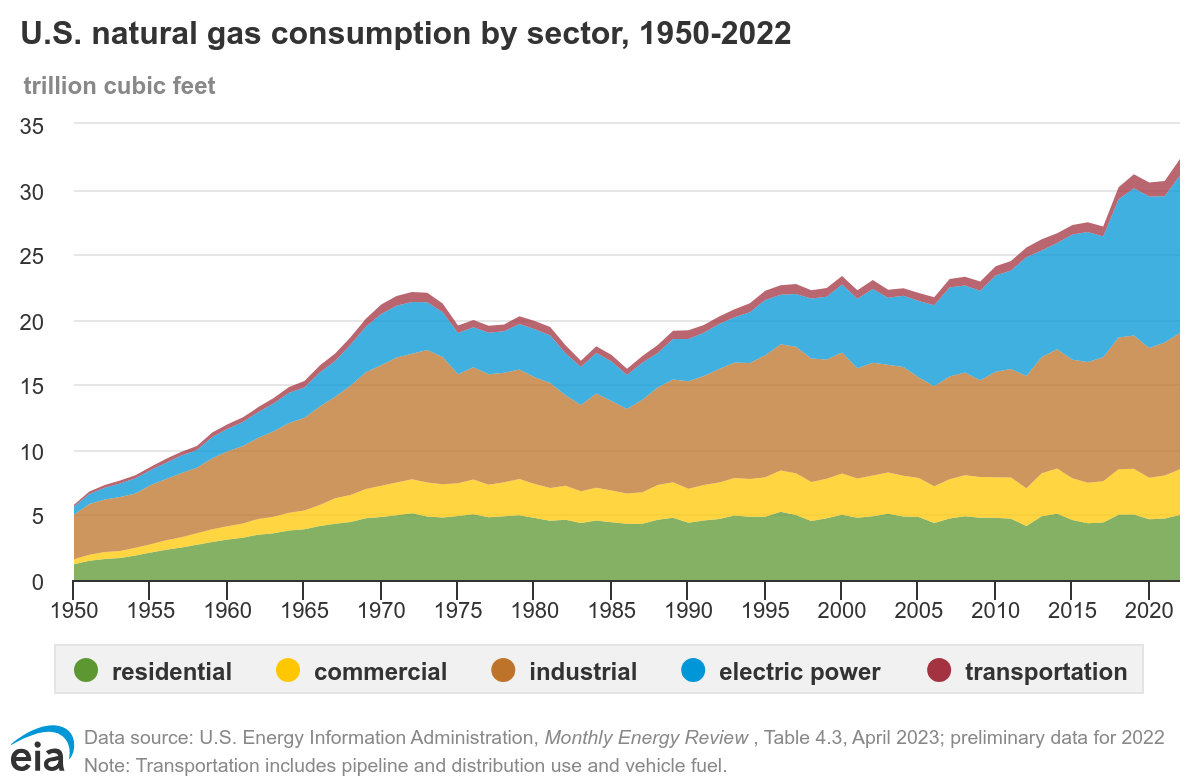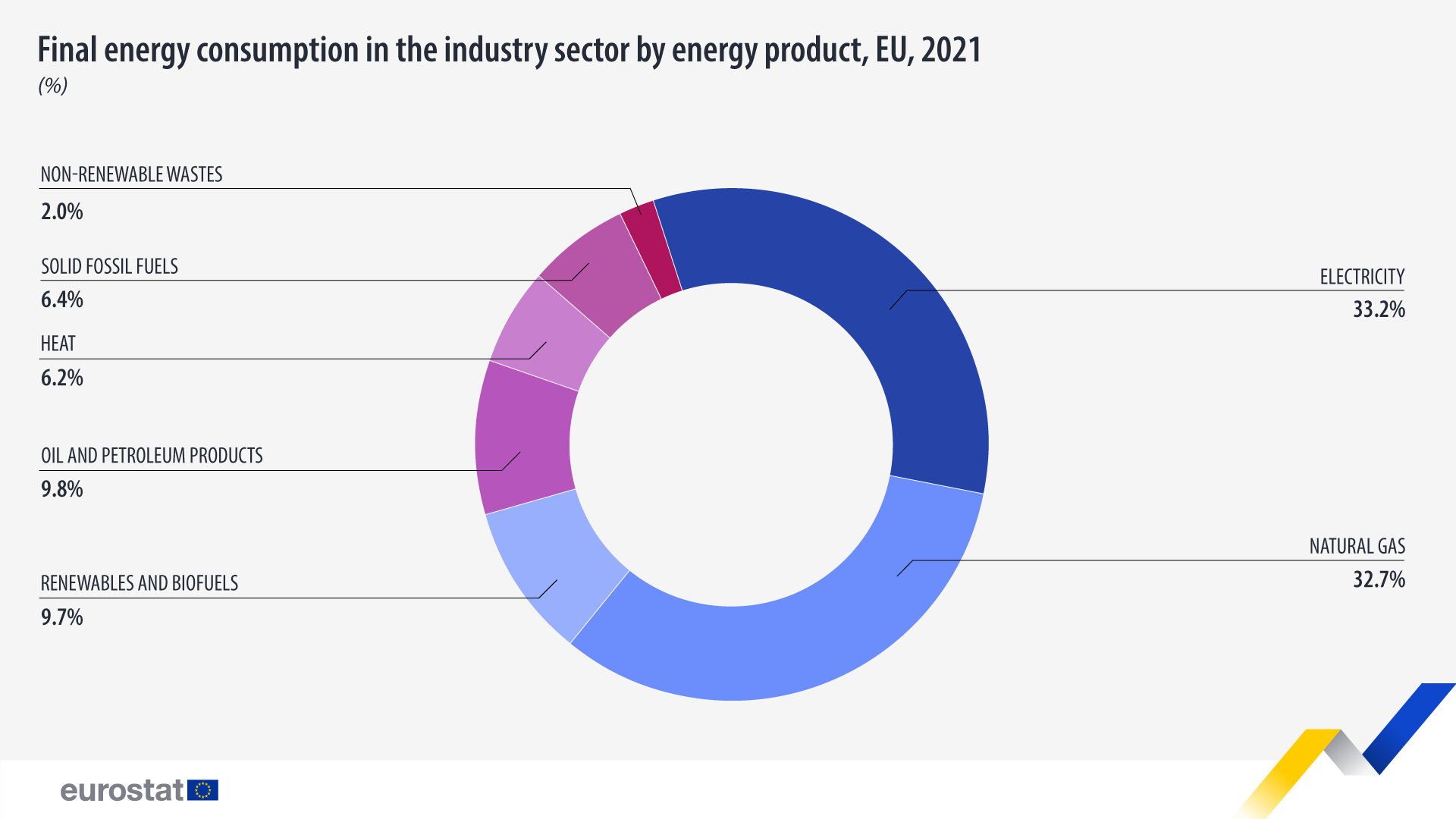
Importance of natural gas: fueling progress
Natural gas plays a crucial role in energy security and the transition to a greener future. Learn more about the importance of natural gas.
Natural gas plays a crucial role in ensuring energy security, fostering economic progress, and facilitating the transition to a more environmentally friendly future. Learn more about the importance of natural gas for a sustainable tomorrow.
What exactly is natural gas (fossil gas)?
Fossil gas, or natural gas as it is commonly known, is a highly flammable, colorless substance consisting primarily of methane and ethane. Although non-renewable, among all fossil fuels natural gas is the cleanest energy source.
This gas is discoverable in the soil, varying from just a few meters to over 5000 meters deep. Its extraction can take place either on land or offshore. Its applications are diverse, finding use in electricity production, heating, transportation, and various industries. These sectors heavily rely on the utilization of natural gas.
What is the importance of natural gas?
Natural gas boasts numerous advantages over other fossil fuels and plays a pivotal role in promoting the widespread adoption of clean energy sources by smoothing out the transition. Discover more about the importance of natural gas.
Effortless delivery
Pipeline transportation and liquefaction for shipping allow countries to store large quantities of fossil gas over extended periods, a contribution that significantly bolsters a nation's energy security. The importance of natural gas lies in its ability to help nations diversify their energy sources.
High efficiency
Natural gas, operating at an impressive efficiency rate of 93%, directly provides consumers with the initial energy. In contrast, the burning process of fossil fuels like coal for electricity generation proves significantly less efficient; only about 28% actually powers consumers in the form of electrical current from this original energy source.
Versatile applications
A 2022 Eurostat report discloses that natural gas, an extensively employed energy source, accounts for 23% of the European Union's total energy consumption. Its applications serve a multitude of sectors.
According to the Energy Information Administration's 2022 report in the USA, the consumption of natural gas was distributed across different sectors as follows:
- Residential: 15%
- Commercial: 11%
- Transportation: 4%
- Electric power: 38%
- Industrial: 32%
There is a consistent upward trend in the demand for natural gas in the US market.

Source: eia.gov
Economic benefits
A 2021 Eurostat report underscores the heavy reliance of the EU's industry sector on electricity (33.2%) and natural gas (32.7%); these two sources constitute two-thirds of its final energy consumption. Contributing significantly to economic development, natural gas remains integral to countless production processes.

Source: ec.europa.eu
Environmentally friendly
The Gas Exporting Countries Forum's findings highlight natural gas as the most environmentally friendly fossil fuel: it exhibits a significantly lower ecological footprint compared to alternative energy sources.
The importance of natural gas in the fight against climate change:
"Natural gas is expected to have an average CO2 emission factor of 2.2 tonnes per tonne of primary energy consumed, which is around 20% less than the emission factor for oil and 43% less than the emission factor for coal. (...) Based on the respective emission factors, natural gas emits 50% less nitrogen oxides than coal and 85% less than oil. Regarding sulfur dioxide, gas emits 98% less than coal and 96% less than oil; gas emits almost no fine particulate matter."
Combatting energy poverty
More than 700 million individuals in the Global South still lack access to electricity, a scarcity that significantly diminishes their quality of life. The absence of reliable electricity can lead to adverse effects on living conditions. The United Nations Economic Commission for Africa advises incorporating natural gas - among other sources – as a means to accelerate the energy transition.
Conclusion: why is natural gas important for a greener future?
Natural gas has the potential to facilitate the transition to renewable and clean energy sources. It aids in accelerating the adoption of clean energy alternatives that might be occasionally unreliable or unavailable. As the most environmentally friendly fossil fuel, natural gas can act as a backup option, ensuring a smoother and easier energy transition.
